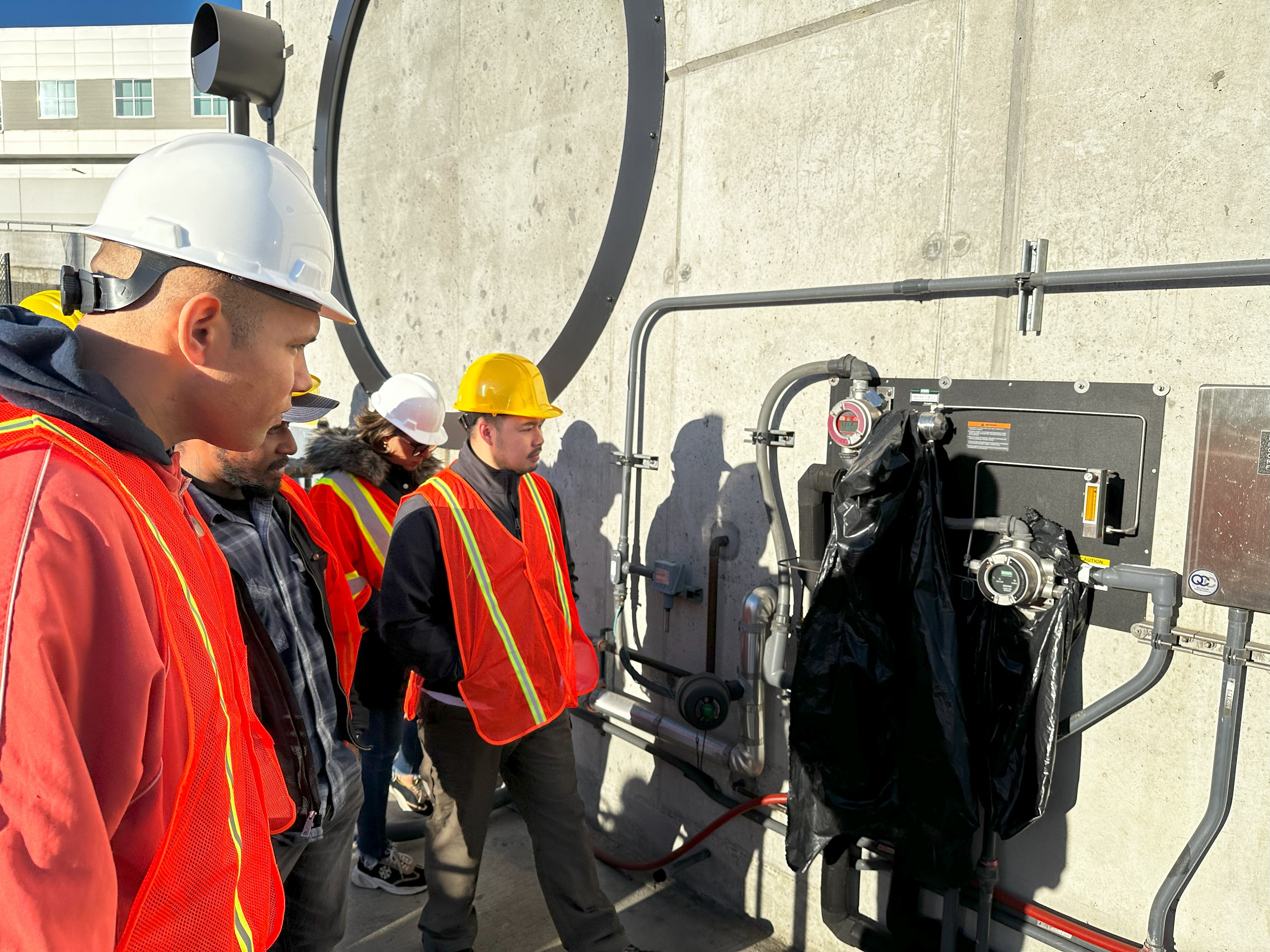Sustainable Building Science Technology Program Celebrates 10 Years, Announces New Training and Assessment Center

South Seattle College’s Bachelor of Applied Science program in Sustainable Building Science Technology (SBST) celebrated its 10-year anniversary on October 2 and announced the establishment of a new grant-funded Pacific Northwest Building Training and Assessment Center.
10th Anniversary Celebration
The anniversary celebration started out with an open reception and alumni panel, recognizing a decade of preparing graduates to apply their expertise and systems knowledge to support highly technical building operations in pursuit of more sustainable buildings and environments.
To follow, the Hermanson Forum (named after construction industry trailblazer Jerry Hermanson who has been an ardent supporter of the program) featured keynote speaker Kate Simonen, founder and board chair of the Carbon Leadership Forum and leader of the Life Cycle Lab. Simonen shared her expertise on sustainability, offering insights on innovative practices committed to carbon reduction strategies across various sectors in the built environment.
Pacific Northwest Building Training and Assessment Center
With the support of a $900,000 grant from the U.S. Department of Energy, the Sustainable Building Science Technology program is working closely with partners at the University of Washington Integrated Design Lab, University of Washington Industrial Assessment Center, and Northwest Indian College to establish a new Pacific Northwest Building Training and Assessment Center (BTAC).
The SBST program will establish the BTAC Center at South Seattle College’s Georgetown Campus using $400,000 of the grant award to provide hands-on energy assessment training serving small and medium buildings to improve energy efficiency. SBST will also develop curriculum for building professionals and the center will serve building owners in traditionally disadvantaged communities by having students in the program provide low to no-cost building energy assessments.
The BTAC aims to fill two gaps in building performance improvements: preparing a trained workforce and providing access to benchmarking and strategic roadmaps for energy efficiency and decarbonization, especially in disadvantaged communities.
BTAC student experiences will combine hands-on building audit training while creating technical roadmaps for regional building owners. The BTAC will leverage partnerships with Pacific Northwest National Lab (PNNL), Washington State Department of Commerce, City of Seattle Office of Sustainability and Environment, utility conservation programs, community partners, and Tribal entities throughout the Pacific Northwest region and northern California, including Northwest Indian College. The BTAC will provide services to Washington, Oregon, and California.
Steve Abercrombie, lead faculty in the SBST program and Co-Investigator on the grant says, “The Pacific Northwest Building Training and Assessment Center is the culmination of sustained effort amongst building owners and operators, government, non-profits, and higher education to provide needed work-based training via a valuable service to decarbonize buildings. We are excited to partner with UW and NWIC to bring this center to our region and beyond.”
Dr. Alison Pugh, Dean of the SBST program notes, “The SBST program continues to be at the forefront of making good change in our communities through its use of living labs, student projects situated in real-world applications, and dynamic partnerships with industry, government, and community organizations working together to transform the ecology of our built environment.”
South Seattle College’s Sustainable Building Science Technology bachelor’s program confers an industry-focused, applied science and technology bachelor’s degree. Designed for working adults and those in transition, with classes held online, evenings, and Saturdays, the program focuses on building science, management skills, essential technologies, and financial/budgeting operations.